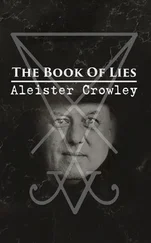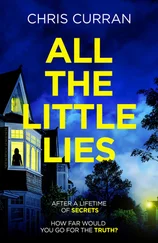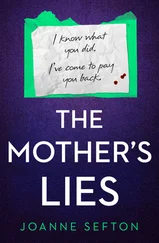I reach a wide older street lined by wooden houses and tumbledown barns. The ground is dusty and it feels good to walk barefoot through the dust.
There is, however, a strange tension in the air.
I turn around and see a puma at the other end of the street. A beautiful animal, khaki-colored and golden, whose silken fur shines under the burning sun.
Suddenly everything is on fire. The houses and barns burst into flames but I must continue down the burning street because the puma too has begun to walk and follows me at some distance, with majestic slowness.
Where to turn? There's no way out. It's either fire or teeth.
Maybe at the end of the street?
It has to end somewhere, this street, all of them do, flowing into a square, another street, fields, the open countryside, unless the street happens to be a dead end, which must be the case here and is.
I can feel the puma's breath very close behind me. I don't dare turn around but I can go no farther; my feet are rooted to the ground. I wait in horror for the puma to leap onto my back, ripping me from shoulders to thighs, clawing my head, my face.
But the puma passes me by; it walks on complacently and lies at the feet of a child at the end of the street, a child who wasn't there before but is now, and it strokes the puma lying at its feet.
The child says to me, "He isn't mean. He belongs to me. Don't be scared of him. He doesn't eat people, he doesn't eat meat. He just eats souls."
There are no more flames; the fire has gone out and the street is only soft ashes cooling.
I ask the child, "You're my brother, aren't you? Were you waiting for me?"
The child shakes his head. "No, I have no brother and I'm not waiting for anyone. I am the guardian of eternal youth. The one waiting for his brother is sitting on a bench in Central Square. He's very old. Perhaps he's waiting for you."
I find my brother sitting on a bench in Central Square. When he sees me, he stands. "You're late. We must hurry."
We climb up to the cemetery and sit down on the yellow grass. Everything around us is decaying: the crosses, the trees, the bushes, the flowers. My brother scratches at the earth with his cane and white worms emerge.
My brother says, "Not everything is dead. Those are alive."
The worms writhe. The sight of them gladdens me. I say, "As soon as you begin to think, you can no longer love life."
My brother raises my chin with his cane. "Don't think. Look- have you ever seen such a beautiful sky?"
I look up. The sun sets over the town.
I answer, "No, never. Nowhere else."
We walk side by side to the castle. We come to a stop in the courtyard at the base of the battlements. My brother climbs the rampart and, when he reaches the top, starts to dance to a music that seems to come from underground. He dances, flailing his arms toward the sky, toward the stars, toward the full and rising moon. A thin silhouette in his long black coat, he advances along the ramparts, dancing, while I follow him from below, running and shouting: "No! Don't! Stop it! Come down! You'll fall!"
He comes to a halt above me. "Don't you remember? We used to climb over the rooftops and we were never afraid of falling."
"We were young, we didn't feel the height. Come down!"
He laughs. "Don't be scared. I won't fall; I can fly. I fly over the town every night."
He raises his arms, jumps, and crashes onto the courtyard stones at my feet. I lean over him, take his bald head, his wrinkled face into my hands, and I cry.
His face decomposes, his eyes disappear, and in my hands there is now nothing but an anonymous and disintegrating skull that flows through my fingers like fine sand.
I wake up in tears. My room is lit by the dusk; I have slept for most of the day. I change out of my sweat-damp shirt and wash my face. Looking at myself in the mirror, I wonder when I last cried. I cannot remember.
I light a cigarette and sit down at the window, watching night settle on the town. Under my window is an empty garden, its lone tree already leafless. Farther away are houses, windows lighting up in greater and greater numbers. There are lives behind those windows, calm and normal and peaceful lives. Couples, children, families. I also hear the faraway sound of cars. I wonder why people drive, even at night. Where are they going, and why?
Death will obliterate everything soon.
It frightens me.
I am afraid of dying, but I will not go to the hospital.
I spent most of my childhood in a hospital. My memories of that time are very vivid. I can see my bed among some twenty other beds, my closet in the corridor, my wheelchair, my crutches, the torture room with its swimming pool and devices. The treadmills on which you were forced to trudge endlessly, supported by a harness; the rings from which you had to dangle, the exercise cycles you had to keep pedaling even though you were screaming with pain.
I remember the suffering and also the smells, medicines mixed with blood, sweat, piss, and shit.
I also remember the injections, the nurses' white blouses, the questions without answers, and most of all the waiting. Waiting for what? Healing, probably, but also perhaps for something else.
I was told later that I came to the hospital in a coma, the result of a serious illness. I was four years old, and the war started.
I no longer know what there had been before the hospital.
The white house with green shutters on a quiet street, the kitchen in which my mother sang, the yard in which my father chopped wood-was it once a reality, the perfect happiness in the white house, or had I merely hallucinated it or dreamed it up during the long nights of five years spent in a hospital?
And he who lay in the other bed in the little room, who breathed at the same rhythm as me, the brother whose name I still believe I know, was he dead or had he never existed?
One day we changed hospitals. The new one was called " Rehabilitation Center," but it was still a hospital. The rooms, beds, closets, and nurses were the same, and the agonizing exercises continued.
A huge park surrounded the center. We were allowed to leave the building to splash around in a pool of mud-the more mud you got on yourself, the happier the nurses were. We were also allowed to ride the longhair ponies that bore us gently on their backs all over the park.
At six I began school in a little room in the hospital. Eight to twelve of us, depending on the state of our health, took the lessons provided by a teacher.
The teacher did not wear a white blouse, but short, narrow skirts with lively colored blouses and high-heeled shoes. Nor did she have her hair up in a bun; it flowed freely over her shoulders, and its color was like that of the chestnuts that fell from the trees in the park in the month of September.
My pockets were filled with those shiny fruits. I used them to bombard the nurses and supervisors. At night I threw them at the beds of anyone who whined or cried, to make them shut up. I also lobbed them at the panes of a greenhouse where an old gardener grew the salads we were forced to eat. Very early one morning I left a few dozen of these chestnuts in front of the director's door so that she would tumble down the staircase, but she just fell on her fat buttocks and didn't even break a bone.
At this point I no longer used a wheelchair but walked on crutches, and I was told that I was making a lot of progress.
I went to class from eight in the morning until noon. After lunch I had to nap, but instead of sleeping I read books the teacher lent me or that I borrowed from the director when she wasn't in her office. In the afternoon I did my exercises like everyone else; in the evening I had to do homework.
I finished my homework quickly and then I wrote letters. To the teacher. I never gave them to her. To my parents, to my brother. I never sent them. I didn't know their address.
Читать дальше
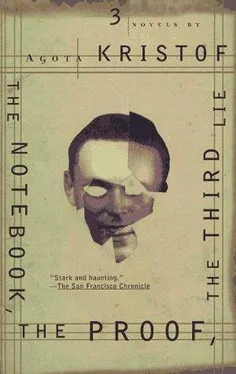




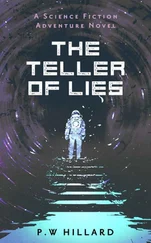
![Джеффри Дивер - Where the Evidence Lies [A Lincoln Rhyme Short Story]](/books/403782/dzheffri-diver-where-the-evidence-lies-a-lincoln-r-thumb.webp)
